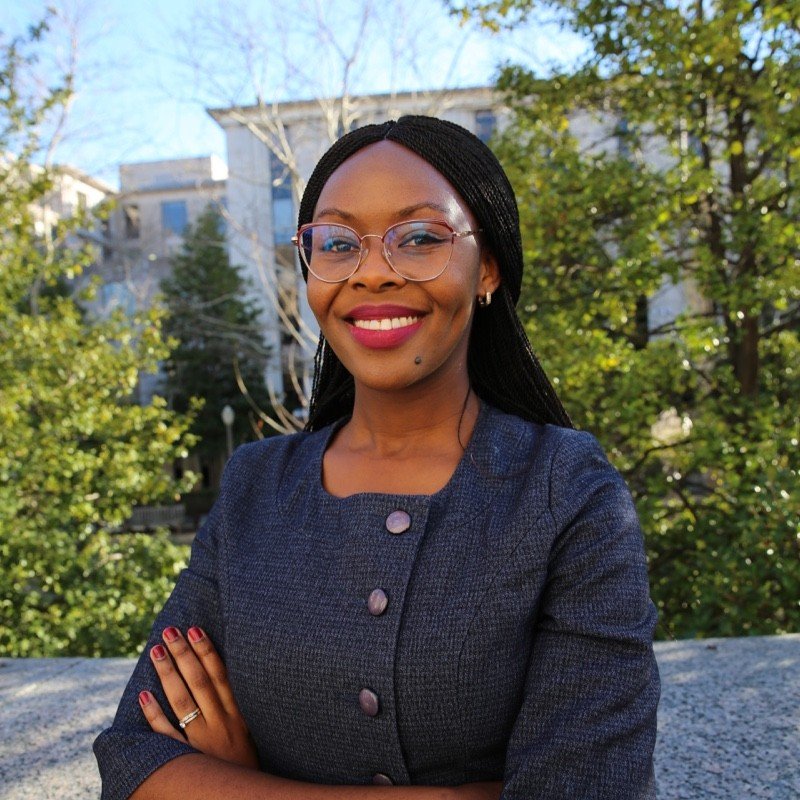S1: Bonus Episode: Ruth Njeri Gitau
It's a joy to speak with my star student, Ruth Njeri Gitau, who not only wrote the best paper in my legal research and writing class at Georgetown University Law Center but just passed the February New York Bar Exam! Ruth is an M&A lawyer with five years of experience at firms including Dentons. Here's her take on how internationally trained lawyers can pass the bar exam. Congratulations Ruth and to those who have passed the bar exam!
What bar prep materials did you use?
Bar preparation courses available at varying costs include: BARBRI Global, Kaplan, Themis Bar Review or JD Advising. These courses provide lectures, outlines, practice questions, and shared tutors who would grade essays and performance tests and provide feedback. Students are encouraged to consider the samples and trials provided by these courses, as well as feedback from prior test takers, as these could aid in what course one would select.
Additional practice resources include, but are not limited to: For the multiple-choice portion of the exam - AdaptiBar, Grossman's lectures and practice questions, and Emanuel's Book have been found to be useful resources by previous candidates. For the writing portion of the exam - NCBE Everything Pack for previous licensed exams, A Short and Happy Guide to The Bar Exam's MEEs by Suzanne DarrowKleinhaus, and Mary Campbell Gallagher, J.D. (Harvard), Ph.D.'s Guide on MPTs are some useful resources, among others.
One-on-one tutoring is provided within and outside bar preparation courses at a separate cost.
Social media sources with useful information include: Bar Exam Toolbox podcast, Reddit, Inc. bar exam sub-Reddit, among others.
Speaking to a number of previous bar candidates to learn from their experiences is an underrated resource.
How long should candidates expect to study for the bar exam?
Regarding time, bar candidates need to consider what time is available to them to study for the bar exam. Bar preparation courses offer schedules that require full-time study for 6-7 weeks, which could require anywhere from 6-10 hours depending on one's familiarity with the material, speed of reading, or grasp of the material. Candidates need to be prepared to spend some hours from their weekend studying where they fall behind their schedules.
Some bar courses provide schedules for candidates who are working that could span over a 4-month period, and these schedules could require studying for at least 3 hours during weekdays and full-day studying during weekends. Completing the bar course one selects as well as several timed practice exams is strongly recommended.
Practice is a crucial portion of this exam due to the unique testing technique adopted for the bar exam. Candidates would need to use the feedback provided by the bar courses to work on weak areas they identify in their exam practice.
What is the number of recommended practice questions for the candidate to complete?
Some sources recommend candidates to complete and review answers to not less than 1,000 practice questions for the multi-choice portion of the exam, and completing timed and graded essays and performance tests is strongly encouraged.
One must consider that bar preparation varies from candidate to candidate, and so do learning styles. Although no single resource is recommended, candidates must be prepared to put in the work required by the examining board as stated on their website, and by the course they select to prepare for this exam.
I studied 8 to 10 hours a day for 10 weeks or so. I have done thousands of practice exams leading up to the exam. They tell you that the target score needs to be 60% two weeks before the exam, I felt like I needed more practice questions. So other than Kaplan, I used AdaptiBar for practice questions
What other factors should candidates consider to increase the chances of passing the bar on their first attempt?
The US bar exam is not only knowledge-heavy but also approach-heavy, and mastering the approach is crucial. You have to learn through practice questions. Learning how to type quickly, how to write in American English, and following the exam format are some of the essential skills that students need to learn. It is important to note that students have different learning styles and may require different resources and approaches to prepare effectively for the exam.

